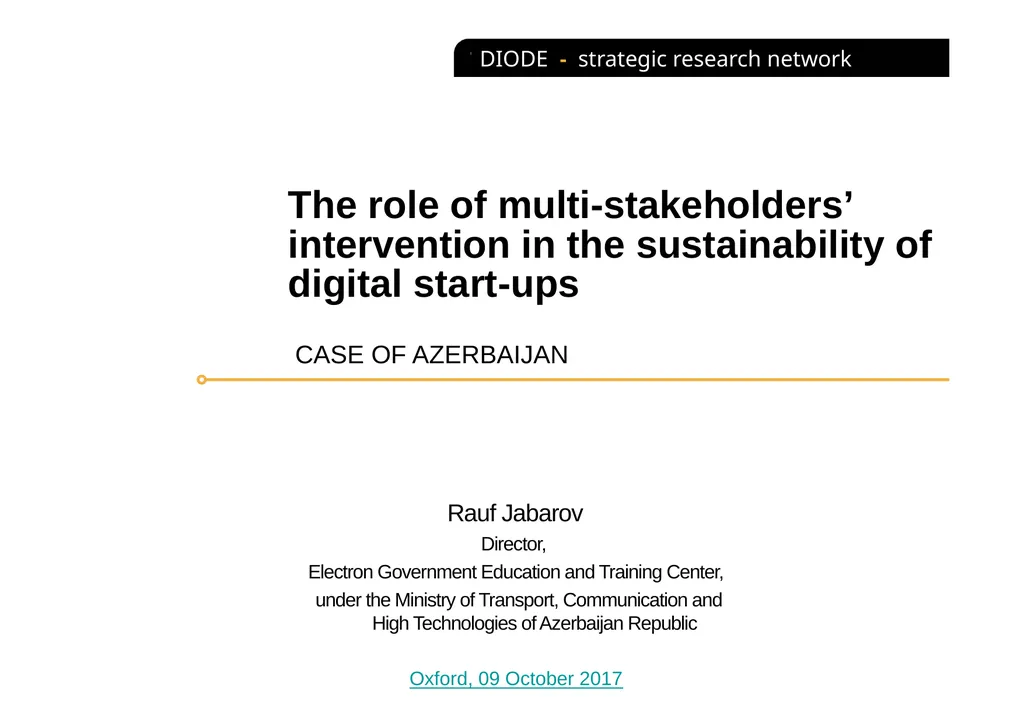
Author : aaron | Published Date : 2025-06-27
Description: The role of multi-stakeholders intervention in the sustainability of digital start-ups CASE OF AZERBAIJAN Rauf Jabarov Director, Electron Government Education and Training Center, under the Ministry of Transport, Communication and HighDownload Presentation The PPT/PDF document "" is the property of its rightful owner. Permission is granted to download and print the materials on this website for personal, non-commercial use only, and to display it on your personal computer provided you do not modify the materials and that you retain all copyright notices contained in the materials. By downloading content from our website, you accept the terms of this agreement.
Here is the link to download the presentation.
"The role of multi-stakeholders’ intervention in"The content belongs to its owner. You may download and print it for personal use, without modification, and keep all copyright notices. By downloading, you agree to these terms.













